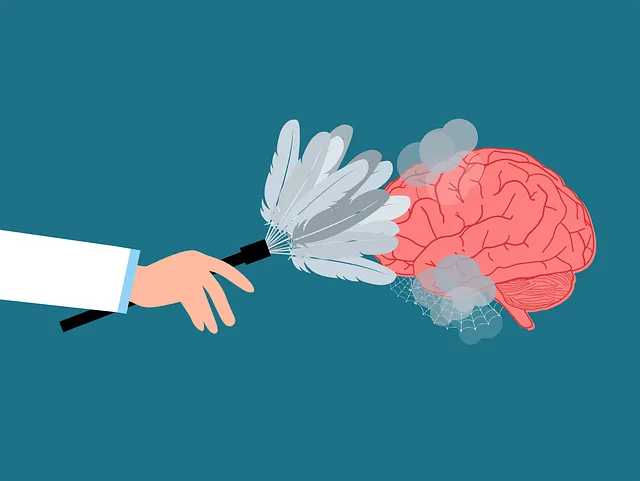The Lakewood Kaiser mental health classes provide a comprehensive approach to trauma support, utilizing evidence-based practices such as CBT, mindfulness techniques, and mind over matter principles. These classes aim to empower individuals by addressing the root causes of trauma, teaching effective coping strategies, and promoting mood management and depression prevention. Facilitated by trained professionals, the small group discussions, empathy building, and community support foster resilience, healing, and improved overall well-being for conditions like anxiety, depression, and PTSD.
Trauma can have profound and lasting effects on individuals, communities, and societies. In response to this critical issue, support services provision has become an essential aspect of healthcare. This article explores the impact of trauma and highlights the role of innovative programs like the Lakewood Kaiser Mental Health Classes in offering effective support. We will also delve into strategies for enhancing trauma support services, focusing on community-based initiatives and evidence-based practices to foster healing and resilience.
- Understanding Trauma and Its Impact
- The Role of Lakewood Kaiser Mental Health Classes in Support
- Strategies for Effective Trauma Support Services Provision
Understanding Trauma and Its Impact

Trauma is a profound and complex experience that can leave lasting effects on individuals’ mental health and overall well-being. It’s important to understand trauma as a response to distressing events, which can vary widely in intensity and nature, from accidents and natural disasters to abuse or military combat. The impact of trauma isn’t always immediate; it may surface months or even years later as post-traumatic stress disorder (PTSD) or other mental health challenges.
Lakewood Kaiser mental health classes are designed to help individuals navigate these complex issues by providing tools and support for healing. These classes often focus on evidence-based practices like cognitive behavioral therapy (CBT), mindfulness techniques, and mind over matter principles to teach participants effective coping strategies. By addressing trauma’s root causes and offering skills for mood management and depression prevention, Lakewood Kaiser aims to empower individuals in their journey towards recovery and resilience.
The Role of Lakewood Kaiser Mental Health Classes in Support

The Lakewood Kaiser mental health classes play a pivotal role in providing trauma support services, offering individuals a safe space to navigate and heal from their experiences. These classes focus on evidence-based practices, such as cognitive behavioral therapy, mindfulness techniques, and empathy building strategies, empowering participants with valuable tools for self-care practices. Through small group discussions and interactive activities, individuals can share their stories, gain insights into trauma responses, and learn effective coping mechanisms to manage symptoms of anxiety, depression, or post-traumatic stress disorder (PTSD).
The supportive environment fostered by Lakewood Kaiser classes encourages participants to build resilience and develop a sense of community. Trained facilitators guide the sessions, ensuring each individual feels heard and validated while promoting understanding and empathy among peers. By integrating self-care practices into their lives, class members can better manage their mental health, improve overall well-being, and continue their journey towards trauma healing.
Strategies for Effective Trauma Support Services Provision

Trauma support services must be tailored to meet the unique needs of individuals who have experienced traumatic events. One effective strategy is incorporating Lakewood Kaiser mental health classes that focus on evidence-based practices such as Cognitive Behavioral Therapy (CBT) and Eye Movement Desensitization and Reprocessing (EMDR). These approaches help individuals process and reframe traumatic memories, reducing symptoms of post-traumatic stress disorder (PTSD) and enhancing overall mental wellness.
Additionally, integrating Mental Wellness Journaling Exercise Guidance into support services can empower individuals to track their progress, identify triggers, and develop coping mechanisms. Encouraging mindfulness practices and promoting Mind Over Matter Principles fosters resilience and equips individuals with tools to navigate future challenges. By combining these strategies, trauma support services can provide holistic care that addresses the complex needs of those who have experienced trauma, ultimately contributing to heightened mental health awareness and improved quality of life.
Effective trauma support services are essential for fostering healing and resilience among individuals affected by traumatic events. By integrating strategies learned from Lakewood Kaiser mental health classes, such as creating safe spaces, employing evidence-based practices, and promoting peer support, communities can significantly enhance their response to trauma. These efforts not only empower survivors but also contribute to building a more compassionate and resilient society.






